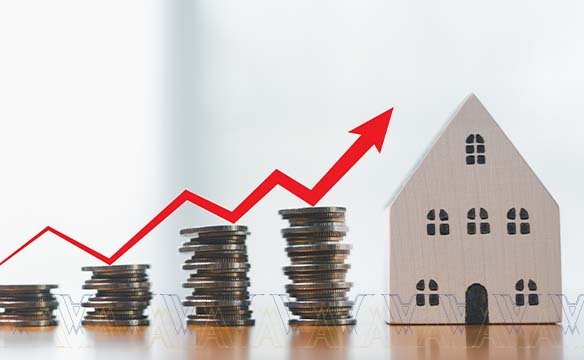
Dubai’s property market continues to attract investors from around the globe, offering excellent opportunities for rental income and long-term growth. But with rising competition and changing tenant expectations, simply owning a property isn’t enough. To truly profit, landlords must know how to maximize rental yield in Dubai—that means earning the highest possible return on investment while maintaining strong tenant retention.
In this guide, we’ll explore proven strategies to help landlords, investors, and property managers enhance their rental income through smart decisions, upgrades, and market insights.
Rental yield is the annual rental income a property generates as a percentage of its market value. In Dubai, yields typically range between 5% and 9%, depending on the location, property type, and management efficiency.
For example, smaller apartments in popular districts like Jumeirah Village Circle (JVC) or Dubai Marina often provide higher yields compared to luxury villas in more exclusive neighborhoods.
To calculate rental yield:
Rental Yield = (Annual Rent / Property Value) × 100
This simple formula helps investors assess profitability and compare opportunities across different areas or property types.
Location remains the most influential factor affecting rental returns in Dubai. Areas close to business hubs, schools, and lifestyle amenities tend to command higher rents and attract longer-term tenants.
Top-performing rental areas include:
When selecting a property, focus on accessibility, infrastructure, and nearby amenities. Properties close to metro stations or within mixed-use communities generally yield better results.
Not all property types deliver the same yield. Apartments usually offer higher rental returns than villas because of lower maintenance costs and stronger tenant demand.
Here’s a quick breakdown:
If your goal is maximizing short-term cash flow, smaller apartments or serviced units in prime locations are ideal. For long-term capital appreciation, villas in upcoming communities may offer greater growth.

A well-maintained, stylish property attracts quality tenants and allows you to charge higher rents. Even small improvements can significantly boost rental yield.
Effective property upgrades include:
A property that “feels new” can command a 10–20% rent premium compared to similar units that appear outdated or poorly maintained.
Setting the right rent is both an art and a science. Overpricing can result in long vacancies, while underpricing cuts into your returns.
To stay competitive:
Using real-time data from Dubai Land Department (DLD) and RERA’s rental index can help landlords benchmark rents accurately and avoid underperforming rates.
Short-term rentals have surged in Dubai, especially with platforms like Airbnb and Booking.com becoming more regulated and investor-friendly.
Advantages of short-term rentals include:
However, this strategy requires more management effort, frequent cleaning, and regulatory compliance. Partnering with a licensed holiday home management company can help maximize profitability while ensuring compliance with Dubai Tourism’s regulations.
Managing a property yourself can be time-consuming, especially if you own multiple units. Hiring a professional property management company can help optimize performance and reduce stress.
Benefits include:
Though property management fees typically range from 5% to 8% of annual rent, the improved efficiency and higher tenant satisfaction often offset the cost.

Modern tenants value convenience and innovation. Adding smart home technologies can increase your property’s desirability and justify higher rent.
Popular smart upgrades include:
These features not only attract tech-savvy tenants but also help reduce utility costs—an appealing factor in Dubai’s competitive rental market.
Understanding your target audience is essential for maximizing yield. The needs of corporate tenants, families, and short-term visitors vary significantly.
Examples:
Align your property presentation, marketing, and pricing with your ideal tenant’s lifestyle. For instance, promoting “family-friendly amenities” in your listings can attract long-term renters who are less price-sensitive.
Understanding Dubai’s rental regulations is vital to protect your investment and maintain strong tenant relationships.
Familiarize yourself with:
Compliance builds trust with tenants and helps you avoid costly disputes or fines.
To maximize long-term yield, diversify your property investments across different areas and asset types. This approach reduces risk and balances your cash flow.
Diversification ideas:
By diversifying, you safeguard your income even if one segment of the market slows down.
Vacancy is one of the biggest yield killers in real estate. Even a month without a tenant can drastically reduce your annual returns.
To minimize downtime:
Happy tenants stay longer, recommend your property to others, and reduce turnover costs—helping you sustain a high yield.
Dubai’s property market evolves rapidly, influenced by tourism, economic policies, and new development projects. Staying informed helps you adapt your strategy for consistent growth.
Track:
Adapting early allows you to capture new opportunities before they become saturated.
Maximizing rental yield isn’t just about higher rent—it’s about sustaining profitability over time. A well-managed, attractive, and legally compliant property ensures consistent income and long-term appreciation.
Smart investors treat their rental properties like businesses, continuously analyzing performance, upgrading strategically, and nurturing tenant relationships. Over time, this approach leads to stable returns and growing property value—an unbeatable combination in Dubai’s thriving real estate market.
Maximizing rental yield in Dubai requires a combination of strategic planning, smart upgrades, and ongoing market awareness. Whether you’re a first-time investor or a seasoned landlord, focusing on tenant satisfaction, property quality, and pricing accuracy will ensure your investment stays profitable.
Dubai continues to offer a promising environment for property investors—with the right approach, your rental portfolio can deliver both steady income and long-term capital growth.
Do Follow Estate Magazine on Instagram
Dubai Property Market 2026: Top Areas to Invest Before Prices Soar
